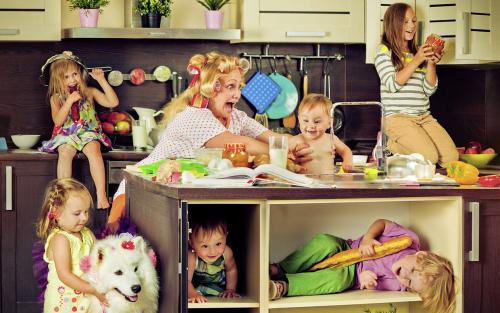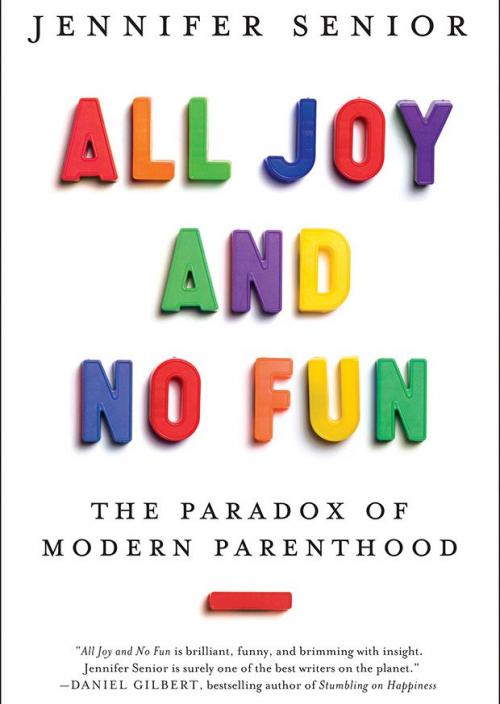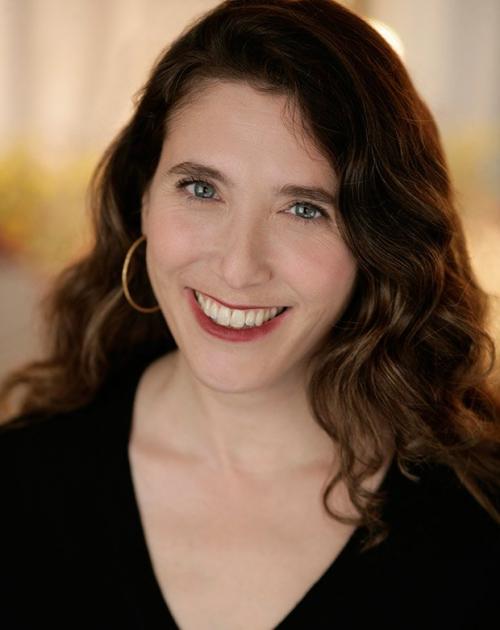All Joy and No Fun: Why Modern Parenting Is So Hard

In 2010, I was pregnant with my first child when New York magazine published a cover story by contributing editor Jennifer Senior titled, “All Joy and No Fun: Why Parents Hate Parenting.” In the story, Senior posited that there’s a huge difference between loving your children and loving the day-to-day grind of parenting, described as a “high-cost/low-reward activity.”
When I first read Senior’s story, I thought to myself, “C’mon! Surely it’s not that tough to be a parent.” But today, four years and two kids later, I cede her point. No matter how much you adore your offspring, it’s hard not to wonder, exhaustedly: “Why is this so dang hard? I don’t remember my own parents being this stressed.”
Senior’s story touched a nerve, and she turned it into a book by the same name, All Joy and No Fun, out today. I recently spoke with Senior about the history of childrearing, why modern parenting is so crazy, and why we all need to stop trying to prepare our kids for the future.

(Courtesy of Ecco books)
There’s a perception that parenting should be this life-enhancing, joyful experience; we literally refer to babies as “bundles of joy.” And then there’s a shock when it’s not all we’ve imagined. Why are we so attached to this notion of parenthood and happiness being intertwined?
Senior: Kids have this privileged place in our universe, and then it turns out that they’re very hard work. If you’re middle class and have a college education, then you’ve likely deferred childrearing for some time. You’ve had a long time to think about having a kid, and the kid becomes kind of a capstone to your life. Rather than owning a house, having a career, or getting married, having a kid is the end goal, almost like finding a husband in a Jane Austen novel.
Not to mention, with anything that requires the kind of gargantuan emotional and financial investment that children require, the stakes are raised. Research shows that if parents learn how much they’re spending on their kids (and the numbers are staggering), they will say they find raising children more meaningful than if they haven’t read those numbers. The more they’re aware of the investment, the more emotionally invested they are. They have to justify it to themselves.
Why does parenting seem “harder”—or at least more demanding of our time and energy—to today’s parents compared to earlier generations?
It is harder. Our parents did not spend as much time with us as we do with our children today. Mothers in the 1960s spent less time intensively playing with their children and engaging with them as we do now. And women were not in the workforce then in the numbers that they are today!
So what changed?
The word “parent” started becoming commonly used as a verb in the 1970s. It went from being something that one was to something that one did. Yet modern parenthood hasn’t been defined. Being a parent used to mean that you fed your kids, you sheltered them, and in exchange they worked for your family. You might have also grown their food, sewn their clothes, educated them.
Kids kind of just “were” and parents just “were.” You didn’t think about this relationship as something to nurture. And people weren’t as sentimental about their kids. People had a lot of kids, and a lot of them didn’t live until adulthood. You had kids so that they could be economically advantageous to you. Parents still loved their children, there weren’t so many expectations.
Then gradually, all the things parents did got outsourced. So what is there left to do? Well, we have to prepare them for the future. Okay: What does that mean? No one knows.
Exactly. It feels like parenting is this task that one is somehow expected to master. And if you don’t, then you’re failing your kids. But no one knows how to do it right.
There’s a deeply internalized fear response: The pie is shrinking, my kids won’t have a chance unless I do their homework with them, and do flashcards, and sign them up for twenty extracurriculars.
The future is so rapidly evolving; it’s not like you’re preparing your kid to inherit your farm. It’s open season on what this thing is, and what might potentially be the best way to go about cultivating your child. We haven’t the faintest idea how to prepare them for the future, not to mention how to ensure that they’re happy and self-confident, too.
Does status-seeking play a role in this, too? Part of dragging your 8-year-old to Mandarin lessons, or becoming a Pinterest-perfect crafter is about showing the world that you’re a wonderful parent with stellar children.
I think the status aspect exists, but it’s overrated. You go into any one community, or let’s say a classroom of 25 parents. There are two or three parents who are status-obsessed and really annoying. And the rest are just trying really, really hard. But those two or three parents really distort how things look, because they’re so over the top, they are like an outlandish version of the norm. Most people are just doing their best and trying to figure out a way to give their kids the best chance in the world.

Author Jennifer Senior (Laura Rose)
The book also focuses on the less-than-fair division of labor in many households when it comes to taking care of the kids. We’ve come a long way in the past generation with regards to dads getting more involved (or even staying home full-time), but moms still feel like they’re doing more.
There is tons of pressure on women to intensively mother. Women tend to pour a lot of psychological energy into thinking about our kids. And we believe that kids need nurturing, and as a compensatory measure for working, women spend a lot of time with their kids.
Men, on the other hand, have the luxury of having not had impossible standards preceding them. An involved dad will be applauded of anything because he’s doing so much more than his own dad did. He’s so unencumbered by societal and internal expectations.
Yet there’s something to be learned from the male style of parenting, which is slightly more forgiving. Cut yourself some slack. In the book, there’s one father who simply says, “I am the standard.” He’s not comparing himself to other dads, he’s not reading BabyCenter message boards. This dad has confidence in his ability to do things well, and that’s that.
The book is not prescriptive: There’s no easy formula for becoming a relaxed, happy parent. But is there anything we can do to at least make it a little less stressful?
I think the best thing you can do is to let go of any idea of what it means to be a “good” parent, and just do your best day to day. Stop worrying so much about how today’s decisions will affect your child’s future.
We live in a time of such high-velocity technological change, that trying to game this, to over-control this, could very well be futile. We don’t really know what’s going to put our kid in good standing in 20 years. Education, sure. But getting hung up on one particular thing is a bad idea. For instance, growing up, I was told it was “imperative” that I learn Japanese. Obviously that’s not turned out to be the case.
It’s also important to remember that we’re undergoing this massive historical transition, and that our roles are not defined. We’re living without a script and everybody is improvising wildly. We are not supposed to know the answers. There are no answers!